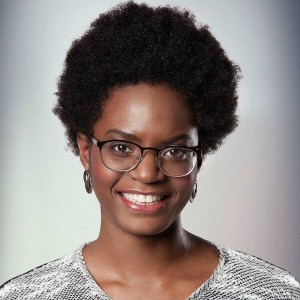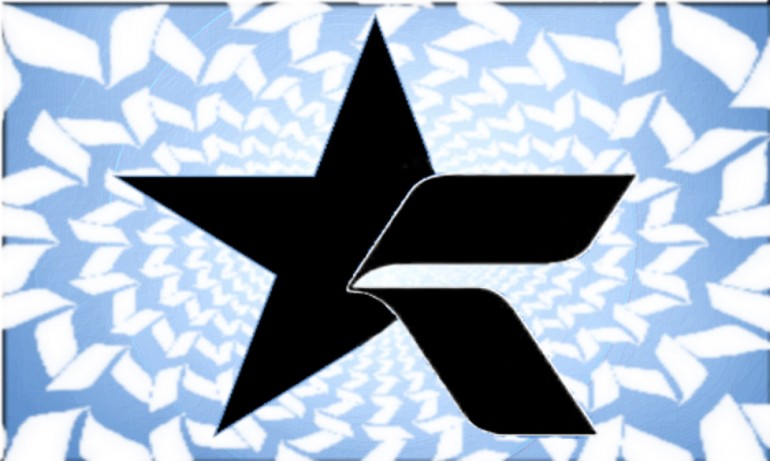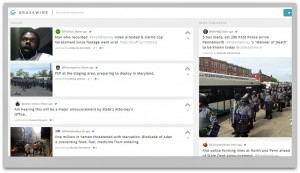There is a new class of Twitter elite — young journalists and pulse-takers who are so good at what they do that national and international audiences depend on these writers’ 140 characters of wisdom and insight to inform and enhance their daily lives. AJR talked to five such Twitter success stories.
Reni Eddo-Lodge | @renireni | freelance writer based in the UK | 9,300 followers
At 24, Reni Eddo-Lodge says she’s “on the cusp” of still being considered young on Twitter. Her presence on the social media platform started as a conversation among like-minded people — activists for social change on gender and race issues. It hit critical mass when she wrote a blog post entitled, “Why I’m No Longer Talking to White People About Race.” The Guardian has listed her as one of the top 30 young people working in digital media. She says being effective on Twitter is “like walking into a room and having a conversation with people…, so humility, being polite, knowing when there’s no point in engaging in conversation because it’s going to get nasty” are some of the rules she goes by.
AJR: Your Twitter feed is important in the journalism world. How did that happen?
Eddo-Lodge: It was just a sort of stream of consciousness of my thoughts and my thoughts became increasingly political. There wasn’t any particular moment. Just more and more people paying attention.
AJR: When did you know you had a presence on Twitter?
Eddo-Lodge: There was a point where I would publish a blog post and I’d be excited if it got 40 hits, and now I can publish a blog post and get 4,000 hits in under 24 hours. It’s really only now, only this year. … What’s interesting – I’m a freelance journalist but what’s happening is my readership is moving from publication to publication so I have a solid amount of people who follow my work and they read whatever publication it’s published at rather than the other way around, when I was starting out.
AJR: What are the big debates you have engaged in online?
Eddo-Lodge: I have been involved in feminist activism since I was about 19. How I got involved in feminist communities was I was using the Internet alongside my activism. I was going to events. I was meeting people. I was staying in contact with people via Twitter and Facebook. I was also involved in the student movement that happened in the UK in 2010. As I knew people involved in things on and offline I was blogging about things that struck me, whether it was student protests or something more recent, some of the debates in feminism regarding black feminism, some of the latent racism that sort of occurs in a movement that unconsciously and unwittingly is marginalizing people and tends to be very white. I couldn’t believe how many people were very interested in this issue. I’d be tweeting from my bedroom or on the bus but it’s all going out to a global audience and I became very aware of that.
AJR: Do youth and the use of Twitter go hand-in-hand?
Eddo-Lodge: I’m 24 at the moment. I feel like I’m on the cusp of being really called young. Seventeen, 18-year-olds are using Twitter in the way that I was using MSN messenger when I was their age.
AJR: Do you have a special way of using language, certain words or attitude on Twitter that works best?
Eddo-Lodge: The majority of people who follow my work on different platforms come through Twitter. Twitter is essentially like walking into a room and having a conversation with people and there’s different ways to do it, so humility, being polite, knowing when there’s no point in engaging in a conversation because it’s going to get nasty, right? It’s about generally just trying to have decent social skills.
AJR: How much of your day or your time do you devote to Twitter?
Eddo-Lodge: My following is on there. That’s how people read my work. For me, it’s part and parcel of what I do. It’s how I find out about news. I’ve met some of the editors I work with via Twitter. It’s a huge part of my work. … I do take breaks around normal times when people stop working. Nobody wants to hear your opinion on everything all the time.
AJR: What’s it like being a Twitter celebrity?
Eddo-Lodge: I’m asked to speak at a lot of events, and to me I don’t like being seen as a personality journalist. I come across this sort of attitude where people, I don’t know, idolize me or I’ll be at an event and somebody will tweet, “Oh @renireni is here but I’m too scared to go up and speak to her.” I’m there as a human being. I’m not Lady GaGa, just come and chat. I would much prefer my work to be the thing that is resonating with people and not me.
AJR: How do you see Twitter’s role in the future of journalism?
Eddo-Lodge: In terms of journalism I suppose you can’t really think about Twitter without thinking about journalism as a whole and that’s a whole other debate. Twitter is also an interesting one because the people, the content creators, the tweeters are the web site, and it would be amazing if other social networks would go the way YouTube has where they actually pay the most widely watched of their users — give them a cut of ad revenue.
AJR: What do you say to people who try to characterize online journalism as different?
Eddo-Lodge: It seems to be much more democratized now, people are saying. Actually, I don’t think that’s the case at all because the more people who are using the web to get themselves heard — the more voices there are — the harder it is to be heard. I started doing this four years ago and a lot has changed. I can’t lie and say I just came out of nowhere. I did a journalism internship at a national newspaper that commissioned my work and that got me a very tiny following and it was really after that that I started to hone my own voice. I did the unpaid work like many other people who are working in journalism now. There is sometimes a sort of a veneer that anybody can get online and just create a readership and everyone’s going to read you and take you seriously, but I don’t believe that that’s the case these days. It’s still unequal.
Chris Cotillo | @ChrisCotillo | journalism student, University of North Carolina-Chapel Hill | 22,700 followers
Chris Cotillo went from junior varsity to the Twitter major leagues when he got two baseball scoops this past winter — the trade of Doug Fister from the Detroit Tigers to the Washington Nationals and Ricky Nolasco’s $49 million deal with the Minnesota Twins — while in high school. Since December, the number of his Twitter followers has jumped to about 21,000 as he continues to establish himself in journalism. Cotillo, 18, who hails from Northborough, Mass., writes for SB Nation’s MLBDailyDish.com and has signed on with Vox Media, he says. As a graduate of Algonquin Regional High School, this fall he’ll begin studying journalism at the University of North Carolina-Chapel Hill.
AJR: As a high school student reporting via your phone, when did things take off?
Cotillo: I had a few TV appearances on MLB Network after breaking those stories, and being on TV with an audience of millions of people, when they show your Twitter handle on a screen, definitely helps get you followers. When I was on set with MLB Network, I was on for a good six-minute segment. I put my phone on a table near the set right before I went on, and when I was done and I looked at my phone, I had I think about 1,500 new followers in a 10-minute span.
AJR: How did your Twitter feed evolve to what it is today?
Cotillo: At the beginning, I was just constantly updating with the latest news and being a place where people could find everything I wanted to find about major league baseball. After a while, I started gaining my own sources in the game, and I was a place for people to find the information first before anyone else reported it. That was really minor [news events] over the summer and the fall of last year, but once winter hit, I got a couple big stories — Doug Fister, a pitcher for the Tigers was traded to the Nationals, and once that happened my Twitter following grew almost 5,000 within a week. I personally try to tweet less because there are some things that people just don’t care about. I’ve also realized that my audience, which was previously locally based in Boston, is now national. So I try to tweet about things with a national interest in mind. And making sure to keep it as professional as I can. In the beginning I was tweeting more often because I was focusing on everything that was happening, regardless if I was reporting it first or not, and I was tweeting about minor stuff that was going on. Right now I try to focus on just stuff that I think I can get first, as well as big things that others are reporting.
AJR: How do you balance school work with reporting?
Cotillo: With that I’ve realized that there’s a great career waiting for me as long as I do well in school. So that’s served as a motivation to do even better in school than I was before. I’ve kept up good grades, and it hasn’t affected them negatively. I honestly, probably, only get about three to five hours of sleep on average. I’ve kind of trained my body at this point to do that. I’m able to be able to get up in the morning at 6:30 and go to school everyday, and I’m usually fine. I know its way less than I’m supposed to get, but I’m pretty good at it at this point.
AJR: What about family and friends?
Cotillo: I am always on my phone, and sometimes that can get annoying if a friend is trying to talk to me or if the teacher is giving instructions. It’s all about multitasking for me, and my family has been extremely supportive of everything. My dad was the one that introduced me to baseball when I was little and my mom and sister have done everything they could possibly do to make my career dreams a reality. We wanted to go on a family vacation recently so we set it up with the winter meetings in December. I got to cover that in Orlando at Disney World, and they got to go to the theme parks while I was working. My mom tells me to put my phone away [at the dinner table], but she knows if a story is breaking or something is important enough, it can’t really wait.
AJR: What about using Twitter has surprised you?
Cotillo: The interaction between me and the actual people I’m tweeting about—players, general managers, teams even the team Twitter accounts—it’s crazy; I’ll tweet something about a player, like “he got traded,” and then that player will retweet it or he’ll respond to it. I always forget that these guys are constantly monitoring Twitter, too. I think the big thing about Twitter for me is that people get to interact with players and important people in the game unlike they ever would before. If you wanted to talk to a player in the past, you’d have to go to the ballpark and hope that he would come that he would come out of the dugout and sign a ball for you. But now you can send him a tweet and there’s a pretty good chance that he’ll at least see it.
AJR: How have your Twitter skills grown?
Cotillo: You have to be careful about how you phrase things. I make sure that I read things over and make sure I have no spelling errors or things that can come off in the wrong way. I also limit my tweets mostly to baseball news, whether it’s me reporting it or someone else reporting it. If everybody’s talking about it, I feel like sometimes I can put my two cents in. But with personal stuff, I’m not going to tweet every time I’m eating a sandwich.
AJR: Why sports journalism, and in particular baseball?
Cotillo: I’ve always loved it. Baseball’s been my favorite sport since I was growing up, and I always kept track of the business side of things. I played it in high school until I ended up getting cut from the junior varsity team. I still wanted to make it to the major leagues, but I realized it wasn’t going to be as a player. I needed to do something else, so I started keeping track of things, and my Twitter account has grown from there.
Noor Tagouri | @NTagouri | part-time reporter/motivational speaker | 10,500 followers

Broadcast journalist and motivational speaker Noor Tagouri, in a picture she posted on Facebook in October of 2012.
Libyan American Noor Tagouri made waves on social media when, at 18, she posted a picture of herself sitting at an ABC News anchor desk, wearing a hijab, with the caption: “This is a picture of my dream. Becoming the first Muslim (hijabi) woman news anchor on American television.” The photo went viral, and Tagouri created a hashtag called #letnoorshine, which as Tagouri explains it, is about encouraging anyone with a dream to talk about it publicly and pursue it. Tagouri is a recent graduate in broadcast journalism from the University of Maryland. She works two part-time jobs in journalism in the D.C. region, as a reporter for Prince George’s Community Television and as an associate journalist/news producer at CBS Radio. On the weekends, she travels and does motivational speaking.
AJR: Tell me about the turning point for you on social media — it was when you posted a picture of yourself sitting at a presenters desk at ABC News, wearing a hijab right? When was that?
Tagouri: I was 18. I shadowed a local reporter, and she took that picture; I posted it on Facebook. I said “This is exactly what my dream looks like.” It went viral, with 25,000 links and shares. When I noticed that was happening, I started a fan page. That’s how my Facebook page — and my Twitter following grew.
AJR: What happened next?
Tagouri: After the photo went viral, my family and I sat down and developed a hashtag, #letnoorshine, which [is geared toward inspiring] people to let their light shine — to understand anything is possible. It really became a huge online community.
AJR: At this point, do you think people follow you on social media for your dream of becoming an anchorwoman, or are they following you because of their own dreams and your hashtag?
Tagouri: It’s a mix. It’s like a dream everyone became a part of. At the same time, people will share with me what they’re doing.
AJR: Do you think your social media following helps you professionally?
Tagouri: It hasn’t gotten me jobs. It helps me get people curious. “Why does she have so many followers?” It didn’t just happen. Obviously running all of this is a job. I’m very picky what goes up on my page.
AJR: How do you define success on Twitter?
Tagouri: Tweets have to be retweetable. People have to love what you say. A big thing people are doing lately is this clickbait stuff. It’s annoying. ‘You won’t believe what’s happening: Read this!’ I’m like, come on now!
AJR: How hard is it to be a journalist, while also posting tweets that come from a strong point of view?
Tagouri: That’s the never ending problem. I’m torn between what I’m saying is ok or not. … When I do have a strong opinion, but I can’t say anything, I’ll post a discussion about the topic and I’ll retweet the topic. I’ll continue to ask questions. Sometimes, I think, ‘Why do I want to be a journalist? Can I care — even being bold?’ And then I remember, I have to have an audience who cares. Putting the important story out there is more important than, ‘does your opinion show through [in] your tweet?’ … I have a platform to tell stories. I don’t want to have to filter myself …. I don’t want to be scared of saying something because of what people might think, … because [of] what I wear on my head, or my views.
AJR: Do you consider yourself a celebrity?
Tagouri: I hate that question. I don’t like answering that. I don’t know what that entails. Today I found out someone started an Instagram fan page for me. I was like, ‘oh, ok.’ When people are keen on calling themselves my fans, I’m humbled. I have a long way to go. Period. It’s a never-ending journey.
AJR: What is your creative process?
Tagouri: I’m always writing. I’m writing in my phone. In my planner. I’m writing in my notebook. I’m writing in my head. I’m always writing. That’s what helps me. I’m constantly working on something. On my craft. That’s the only way I’ll get better.
Callie Schweitzer | @cschweitz | director of digital innovation @Time | 57,700 followers
Dubbed one of New York’s “best-networked youngsters” by Forbes, Callie Schweitzer, 25, has been Time’s director of digital innovation since last summer. She was previously director of marketing and communications for Vox Media and deputy publisher of Talking Points Memo. She says Twitter has “leveled the playing field for both the average person and journalists to reach a prominent figure,” and a key to a good Twitter feed is the human touch.
AJR: Your Twitter feed is important in the journalism world. How’d that happen?
Schweitzer: I wouldn’t say that my feed is more important than anyone else’s in the journalism world, but I have definitely tried to remain authentic on Twitter, and I think people respond well to Twitter feeds that feel like they’re run by humans and not RSS feeds.
Schweitzer: I tweet a lot about @DietCoke because it’s my favorite carbonated beverage and when strangers started tweeting me pictures of Diet Coke accessories they came across in their day to day lives, I was pretty excited.
Schweitzer: I definitely try to be conversational on Twitter because I think people really value that human voice. I try to strike a balance between all of the things I’m reading about — politics, business, tech, entertainment, the list goes on — because I’m interested in so many different things.
Schweitzer: As TIME’s Director of Digital Innovation, Twitter — and social media in general — is a huge part of my job. I’m focused on growing our digital audience, and all social media platforms are crucial to that. Despite being away from my desk for most of the day, I do try to tweet often so that my parents don’t think I’ve gone missing.
Schweitzer: I joined Twitter in 2009 when I was a sophomore in college. I took a brief hiatus after I first started tweeting because I realized I was mostly tweeting about biking to class and other meaningless things. It wasn’t until I got really involved at our school publication, Neon Tommy, that I began seeing the value of curating and sharing news. It was actually my mom who encouraged me to get back on. How’s that for a millennial moment?
Schweitzer: There will always be a new shiny social media bauble for us to experiment with, but given that journalists like to hang out on Twitter, I think it’ll remain an important part of journalism in the near future.
Schweitzer: Twitter has become a breaking news wire for me. It’s where I go to see what is happening this very second, and that’s a really amazing feature to have. When I was reporting regularly, I did what most journalists do now and tweeted the news before writing it in any kind of formal post. That’s a real change for the industry.
Schweitzer: I try to be myself on Twitter, so I am always tweeting “socially.” Family and friends often use my tweets to see if I’m awake. If I haven’t tweeted yet that day, I might not be!
Andrew Rexford | @CollegeStudent | college student | 462,000 followers
A business management student at Saginaw Valley State University in Michigan, Andrew Rexford, 21, runs the @CollegeStudent Twitter handle. Rexford tweets relatable content about the struggles of being a college student, and since March 2013 has accumulated over 460,000 followers. He makes no secret of the way he handles his account; he’s not a journalist. He makes money from sponsored tweets and studies closely which topics work and which don’t with his followers. He says college students find the feed aspirational and intensely relatable. Even though they aren’t really blowing off tests and eating too much pizza most of the time, he says, they like to tweet about such topics.
AJR: Did you think @CollegeStudent would blow up to have hundreds of thousands of followers when you first started it?
Rexford: When I first started it, it gained like 16,000 followers in the first night, so I knew it was going to be big, but I didn’t think it was going to be as big as it ended up.
AJR: What spurred that?
Rexford: So at that point, I owned a few other Twitter accounts. So I just retweeted the tweets on those accounts. They didn’t have a ton of followers. I was surprised when it gained 16,000.
AJR: Was there a tweet that traveled more than the others?
Rexford: There were two. One of them was: “Due tomorrow? Do Tomorrow.” The next one was: “Homework is only worth 10 percent of my grade? Awesome, no homework.”
AJR: Why did those two tweets resonate?
Rexford: Well, I don’t really know. I know that college students procrastinate a lot, but, as much as people do like to procrastinate, I don’t think they do it as much as those tweets say. No one would actually not do their homework. I just think people thought it was funny. They wish they could do that.
AJR: What’s your motivation for a bigger audience? Are you monetizing this?
Rexford: One way, companies who want to advertise to college students will pay for me to post about them. I get paid per post. It’s an agreement we make over emails. [In one case], I’ll post links to galleries and I’ll get paid per click.
AJR: How does your audience respond to sponsored tweets?
Rexford: Usually there’s a picture involved and it’s a meme and if it’s used the right way, they actually do pretty well.
AJR: How much money do you make per month from your sponsored activity on Twitter?
Rexford: It varies from month to month. I’d rather not say. It’s enough for me not to have a job.
AJR: I want to talk about the content of the feed itself. You write a lot about college debt. Your tweets are funny, but I get the sense this is a real concern of yours. Am I reading that right?
Rexford: Oh yeah. Definitely. I tweet about it so much. Those tweets get a lot of retweets. It’s clear everyone feels the same way.
AJR: In one tweet, you wrote, “Whenever I get low on money, I always start thinking really irrationally like what if I hadn’t spent that $10 back in 2003.” That tweet got 3.9k likes. To put this in context, well, even The New York Times is not routinely getting that kind of engagement on Twitter. Any secrets?
Rexford: Some of the difference: If the tweet has a link in it, it’s going to have less engagement either way. But I think the difference is that I think my account just resonates with students more. They can see themselves in it. They don’t really see it as some company tweeting to them. It’s just another college student doing it.
AJR: Even though companies sometimes are tweeting to them, right?
Rexford: Yeah. Even when I do tweet from companies, with links, it does get more engagement than most news stories I see. I work with them to come up with a tweet that has the voice of a college student in it.
AJR: Are the @CollegeStudent tweets solely from you?
Rexford: I do make up some of my tweets. I get inspiration from other tweets but other websites too.
AJR: Do you credit them?
Rexford: No. If there’s a water mark on it, I’ll leave that on the picture. A lot of the times I change the wording on the tweets. If I see — if I’m on Reddit and I see a picture, I think of a headline and I tweet it. I do make up tweets. It’s funny, I’ll see two minutes after I tweet my original tweet, it will be copied by five other accounts.
AJR: Do they credit you?
Rexford: No. Mostly, I don’t do that because it takes too much space in the tweet. It doesn’t look as good. It gets less engagement. I feel like it’s more ok for an account like mine to get away with it, than actual verified accounts. I don’t think there’s a problem with it as long as it’s not word for word or as long as every tweet is not copied.
AJR: Have you ever sent out a tweet that you regret?
Rexford: Yeah. If it doesn’t have a certain amount of retweets, I delete it after a few minutes.
AJR: Why?
Rexford: I want to keep the engagement up on my account and I don’t know. It feels weird to me, having a bad tweet up there that didn’t do well. It helps me learn what tweets do well.
AJR: How do college students use Twitter? For news or entertainment?
Rexford: I think it differs. I know a lot of people use it to get news too. That’s the main reason I use it on my personal account. They like to get news; they also like to get entertainment news. I think whether it’s real news or celebrity news, that’s the main use for it.
Editor’s note: Questions and answers were condensed for readability. This story contains contributions from Maddie Tallman and Olivia Owens.













Leave a Comment